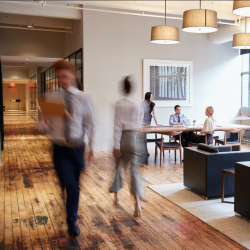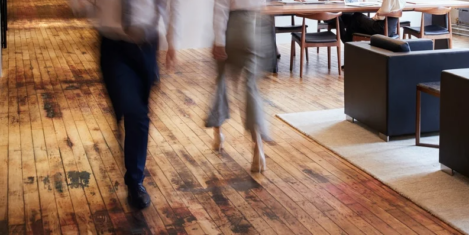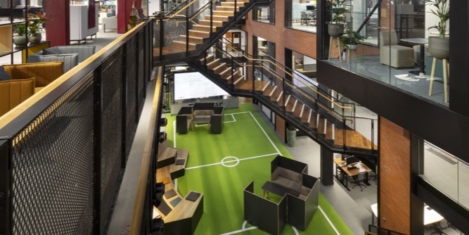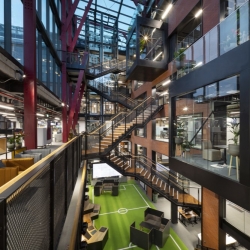March 15, 2023
Office market continues to fail on environmental standards …. say landlords
 A new survey that explores the state of sustainability within the UK office market, jointly commissioned by infinitSpace and The Instant Group, claims that the office market is falling behind on environmental policies. The poll of 250 landlords suggests that almost half (47 percent) of landlords believe the office market is lagging behind other areas of the property sector in implementing/adopting environmental policies. The same number say they can’t ‘go it alone’ with 47 percent of landlords agreeing they need help in shaping environmental policies. At the same time, 84 percent of landlords report a vacancy rate of 30 percent and above as average among their office building portfolio. (more…)
A new survey that explores the state of sustainability within the UK office market, jointly commissioned by infinitSpace and The Instant Group, claims that the office market is falling behind on environmental policies. The poll of 250 landlords suggests that almost half (47 percent) of landlords believe the office market is lagging behind other areas of the property sector in implementing/adopting environmental policies. The same number say they can’t ‘go it alone’ with 47 percent of landlords agreeing they need help in shaping environmental policies. At the same time, 84 percent of landlords report a vacancy rate of 30 percent and above as average among their office building portfolio. (more…)









 A new study claims that hybrid working is leading to a healthier workforce, with more time being dedicated to exercise, sleep and healthy eating. Research among more than 2,000 hybrid workers by IWG suggests that the time saved by reduced commuting has led to multiple health and wellbeing benefits including weight loss, better cooking habits, improved mental health and a longer night’s sleep.
A new study claims that hybrid working is leading to a healthier workforce, with more time being dedicated to exercise, sleep and healthy eating. Research among more than 2,000 hybrid workers by IWG suggests that the time saved by reduced commuting has led to multiple health and wellbeing benefits including weight loss, better cooking habits, improved mental health and a longer night’s sleep. 








 One in four (23 percent) UK office workers plan to take advantage of remote working to log on from abroad in 2023, with a third (32 percent) doing so against company rules, according to new research by the risk management and insurance broker, Gallagher. The survey of more than 2,000 UK office workers claims that the dramatic increase in hybrid working post pandemic now extends to a “work from anywhere” culture. But employees choosing to locate themselves overseas brings risk implications for their employer, as well as themselves.
One in four (23 percent) UK office workers plan to take advantage of remote working to log on from abroad in 2023, with a third (32 percent) doing so against company rules, according to new research by the risk management and insurance broker, Gallagher. The survey of more than 2,000 UK office workers claims that the dramatic increase in hybrid working post pandemic now extends to a “work from anywhere” culture. But employees choosing to locate themselves overseas brings risk implications for their employer, as well as themselves. 
 The leadership pipeline for women has hollowed out in the middle, according to a new study “
The leadership pipeline for women has hollowed out in the middle, according to a new study “
 The organisers of NeoCon have announced that the submissions portal for the 2023 edition of the
The organisers of NeoCon have announced that the submissions portal for the 2023 edition of the 









March 6, 2023
The six skills managers will need for the future of work
by Lea Kimpele • Comment, Flexible working, Technology